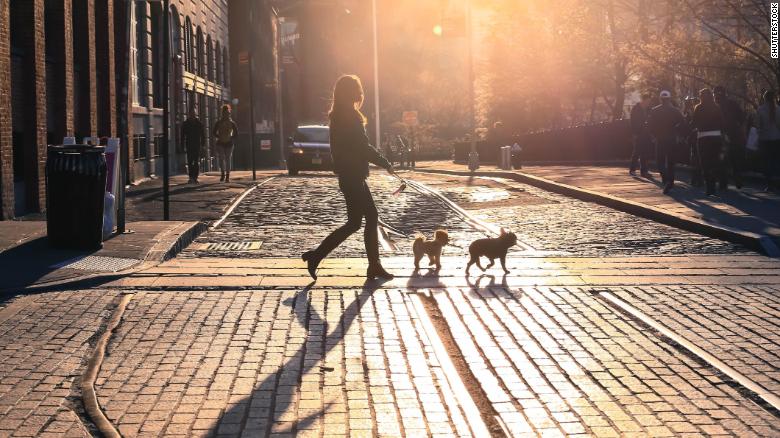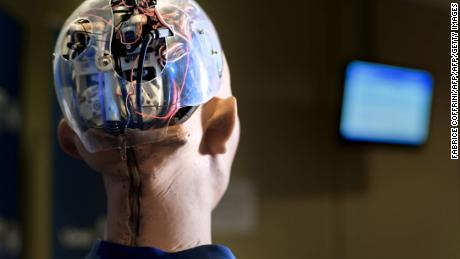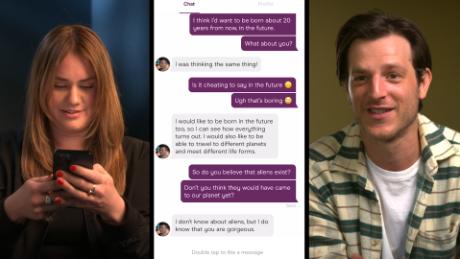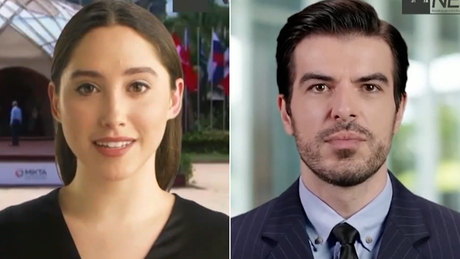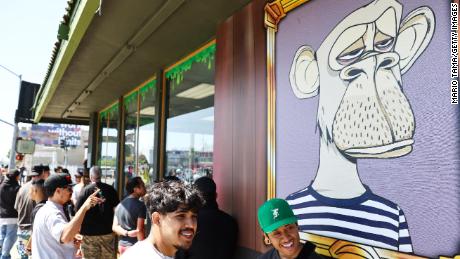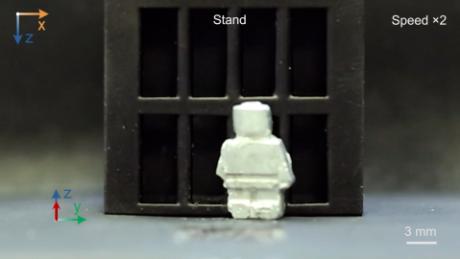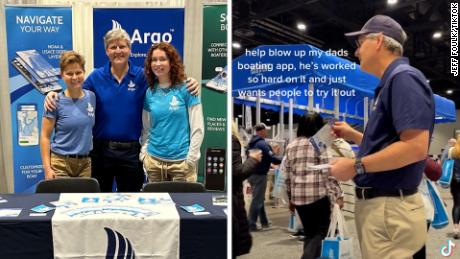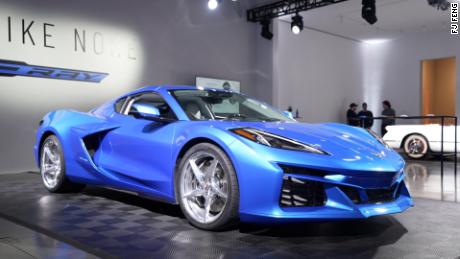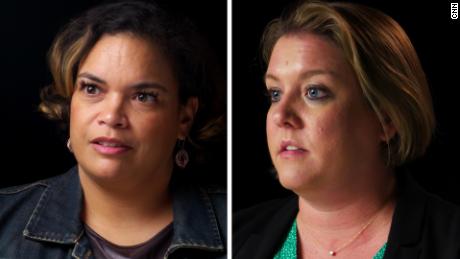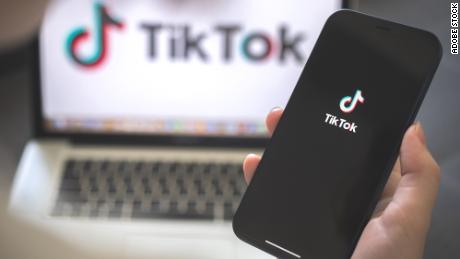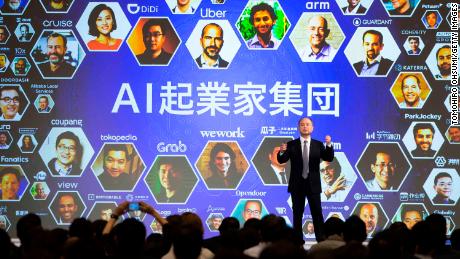Dog-walking startup Wag raised $300 million to unleash growth. Then things got messy
Updated 1635 GMT (0035 HKT) September 27, 2019
(CNN)At the start of 2018, Wag looked like tech's next Big Thing.
In January, the founders of the dog-walking startup announced they had landed a $300 million investment from SoftBank's Vision Fund. The world's largest tech investor, SoftBank had $93 billion at its disposal and a network of global connections second to none. Unlike almost any other venture capital firm, it was capable of single-handedly supercharging businesses and shaking up entire industries.
Launched in 2015 at the height of the on-demand boom, Wag was founded by brothers Joshua and Jonathan Viner, along with Jason Meltzer, who previously ran a traditional dog walking business. Together, they followed Uber's playbook: connect pet owners with Wag's network of dog walkers, who work as independent contractors.
The startup attracted endorsements from celebrities including singer Mariah Carey and actress Olivia Munn, who is also an investor. By the time of the SoftBank deal, Wag had reached 100 US cities. With SoftBank's backing, and the appointment of a veteran CEO around the same time, Wag looked primed to become a global pet care services leader.
More than a year and a half later, SoftBank and Wag have fallen short. Wag has gone through multiple rounds of layoffs, endured management changes, and shuttered its customer service hub in the Hollywood Hills, according to interviews with 17 former employees who've recently left Wag, some as part of layoffs. Most spoke with CNN Business on condition of anonymity, citing non-disclosure agreements or fears of retaliation.
Some of the former employees claim that Hilary Schneider, a veteran tech executive who joined Wag as CEO in January 2018, has yet to get a handle on fundamental issues facing the business -- including growth, safety of pets, and customer service.
Wag's stumbles highlight the challenges that startups face in trying to apply the popular on-demand model to upend a range of industries in pursuit of rocket ship growth, even with a war chest of funding. It comes amid broader doubts about SoftBank's strategy to pump vast amounts of capital into flashy tech startups. Two of SoftBank's other large investments, Uber and WeWork, have received pushback from public market investors.
"Senior leadership [at Wag] was disengaged from the company and product and didn't have a good understanding as to the strategy needed to make it viable long term," said Eric Weinmann, who was responsible for analytical reporting, strategy, and analysis concerning growth and user acquisition from August 2018 to July 2019. "Wag never appeared to have a coherent way to measure successes and failures."
In a lengthy statement in response to a detailed list of questions from CNN Business, a Wag spokesperson said its "senior leadership is highly intentional with its direction of Wag, using a data-driven approach to guide strategy and growth, while also improving the customer experience."
The company also repeatedly stressed that it is working to "grow thoughtfully" to add "long term value for the business," while focusing on "driving customer retention and loyalty."
The company's once compelling growth has declined while Rover, its main competitor, continues to see increased sales and to dominate over Wag, according to data provided by research firm Second Measure.
While Wag started as a dog-walking startup, Rover launched four years earlier as a boarding service for canines -- a more costly but typically less frequent need for pet owners. Both now have expanded upon their original offerings to become directly competitive. This year, Rover branched out to include services for cats.
After the SoftBank deal, which rocketed Wag's valuation to north of $600 million according to Prime Unicorn Index, which tracks valuations of privately-held companies, Wag was gaining market-share over Rover. It held nearly 23% in the first quarter of 2018. However, it now holds about 16% of the market compared to Rover, data from Second Measure shows.
Wag's struggles since raising hundreds of millions of dollars casts doubt on SoftBank's ability to declare winners in the market with its checkbook alone. It also highlights the challenges of trying to scale an Uber-style business that impacts not just real customers, but their beloved pets.
Runaway growth ŌĆö and dogs
In the wake of the Great Recession, entrepreneurs raced to build every type of app-based, on-demand service they could think of ŌĆö from grocery delivery and meal kits to at-home manicures, laundry pickup, house cleaning and, of course, getting a ride. So why not dog walking?
That's how Jonathan Viner described the lead-up to founding Wag in a podcast interview published last fall. His brother, Josh, had wanted to get a dog for years but was told by family members that he was too busy to take care of one.
"[Josh] got really excited about an opportunity to build an app that was a button on the phone for dogs. He felt like, if he had this problem then many, many other people that want to own and rescue dogs also [would have this same] problem," Jonathan said in the podcast.
The brothers had started businesses together before, most recently a social dating service ChirpMe, which reportedly sold for an undisclosed amount in 2013. Mike Walsh, a general partner at Structure Capital, which was an early investor in Wag, described the brothers to CNN Business as "so smart" that it's "almost difficult to communicate" with them.
With Wag, their aim was to help dog owners access its vetted local dog walkers at any time.
Pet owners can request a lockbox from Wag that allows dog walkers to let themselves into the home with a simple code to retrieve a dog for a 30-minute or 60-minute walk, or a 20-minute check-in. A 30-minute walk starts at $20. Capitalizing on the popularity of animals on social media, Wag uses its social platforms to post irresistible photos of dogs taken by walkers on the job.
Wag faced all the usual pain points of an on-demand startup relying on contract workers, including questions about its background checks and its ability to thoroughly train its workers. On top of those, though, it had added a uniquely challenging element: the unpredictability of dogs and how they'll react to strangers leashing them up for a walk.
Local publications across the country have chronicled a long list of concerning incidents including lost dogs and even some dogs dying in the care of Wag, and competitor Rover's, service. In response to an incident on its platform, Rover recently said that incidents are "rare" but should one occur "our team will conduct an in-depth investigation and take appropriate actions, such as removing users from our community."
Wag has had at least five allegations made public of dogs being abused or dying in its care in the past year. The company didn't directly address CNN Business' questions about safety incidents in its statement but in response to a recent incident, Wag said that it cares "very deeply about the health and safety of the dogs walked on our platform." In a blog post earlier this year, Schneider addressed backlash related to how it has handled some of these issues in the past.
From the start, the Viners had to deal with runaway dogs, a problem that only became more frequent as the company scaled. The team, which initially operated on laptops out of the Viners' home in Los Angeles, would drop everything to search for dogs that had gotten off leash while under the care of its walkers, according to one early employee.
The rest of the time, the Viners were relentlessly focused on growth -- adding more walkers to provide more and more walks, the early employee told CNN.
The Viners did not respond to request for comment for this story.
Some former employees looked back fondly on the early days, describing a love for dogs and a sense of mission to build up Wag. They also described the culture as that of a fast-growing startup with some not uncommon issues. For one, the company didn't have a dedicated human resources person on staff until around the time the SoftBank deal was announced. And, at least two of the individuals CNN spoke with mentioned inconsistency in salaries, with managers at times making less than those in inferior roles or in the same roles, for instance.
"When they started expanding, that's when things got messy," a former customer service employee, citing growth that began really ramping up in 2017. "We couldn't handle our volume, we weren't trained properly, there were no expectations when it came to incidents. The more clientele we had, the more incidents that would arise."
Incidents include dogs getting off-leash, injured, or worse. Customer service workers were tasked with calling local shops around town "hoping someone would see the dog," but weren't supposed to reveal that Wag was calling, according to one former employee in the department. "You'd have to say, 'my friend's dog is lost and we're looking for it,'" the former customer service employee said.
SoftBank's investment and Schneider's appointment were viewed as steps necessary to steer a scrappy startup and its internal processes towards maturity. After naming Schneider as CEO, the brothers officially departed six months later, sharing plans to launch an investment fund.
Earlier this year, the two launched a scooter startup called Wheels. They've recruited at least a few former Wag employees and their website notably touts their ability to raise nearly $400 million in capital at Wag.
Cofounder Jason Meltzer, who stayed on after the Viners, told CNN Business he is also no longer at Wag but did not state when he left. He said he has started a new company in the entertainment space, and is advising startups. He did not respond to a list of questions sent over about his time at Wag but said he plans to write a book about the early days at some point.
A veteran leader takes the reins
Before joining Wag, Schneider had most recently led LifeLock through its $2.3 billion acquisition by Symantec in 2016. Prior to that, Schneider had been executive vice president at Yahoo! Americas.
After LifeLock, Schneider wasn't sure if she would take on another full-time role, she said in an on-stage interview at the Spark 2019 conference. She added that Wag fell into a slim category of companies that would give her the ability to work on building a consumer brand and doing good for the world.
"The founders of Wag reached out -- and it was like, 'What an incredible opportunity,'" said Schneider. SoftBank had knowledge that Schneider was being tapped for the role as part of its due diligence process around the deal, a source familiar told CNN Business.
After the Viners left, there were a slew of departures of early Wag employees, and Schneider started appointing new leadership in the Bay Area, where she lives, some of whom have already departed the company. Under her, the company's Los Angeles operations, once the heart and soul of its business, have been effectively left behind in favor of its Mountain View office and its office in San Francisco, some former employees said. Operating out of a different city from Wag's original headquarters, Schneider is viewed by some employees as disengaged.
"We invented on-demand dog walking in 2015 in Los Angeles and remain committed to our Los Angeles headquarters location," according to a Wag spokesperson.
Schneider hosts weekly internal video conferences called the Weekly Bark where she addresses staff and solicits Q&A from employees in a bid to stay connected, some former employees said.
While the typical playbook for fast-growing startups that receive a large investment is to spend on marketing to fuel growth, three former employees say Schneider broadly cut back on marketing soon after she took the job. The rationale for the cutbacks, according to one source, was to manage cash flow concerns following a struggle to accelerate growth after the SoftBank investment.
Some of the former employees said Schneider didn't seem intimately familiar or concerned with growth metrics in a practical sense.
"I don't feel like they have all their ducks in a row," said one former employee who left the company earlier this year for another job. "I have doubt in the product and doubt in the leadership."
The company's user and new customer counts, as well as walk volume has been declining since the fall of 2018, but became more pronounced in the spring of 2019, a former employee said. Data provided by Second Measure shows that the company's sales were down nearly 12% in the second quarter of 2019 compared to one year earlier.
Schneider held a series of several-hour meetings throughout April, May and June with a small group of trusted employees to investigate the declining volume of walks, a former employee told CNN Business, but there weren't any clear paths forward. After a roughly two-hour presentation on the business, the employee said Schneider wasn't interested in or didn't understand ideas presented to her, such as spending more on acquisitions to grow volume, or increased discounting, and some left the meeting frustrated and defeated, the employee said.
Wag did not directly respond to or dispute this and other claims included in the list of questions CNN Business provided to its spokesperson. The company instead touted its expanded product offerings, optimizing customer experience, and "new opportunities for expansion" including hardware and "strategic partnerships." According to a landing page on Petco's website, the two have a partnership launching soon.
Perhaps the most glaring evidence that the startup's ambitions have been tempered: Wag's anticipated global launch has yet to happen.
"They were definitely planning to use some of [the Softbank investment] for global expansion -- that's what the Viners told me," said Structure Capital's Walsh, who also invested in the Viner's latest startup, Wheels. Walsh added that he is no longer close to Wag since the Viners' departure and doesn't have knowledge into Schneider's thinking.
At the time of the SoftBank investment, SoftBank Vision Fund managing partner Jeffrey Housenbold referred to Wag as the "clear leader in the rapidly growing global market for pet care services."
But since the investment, Wag has added 10 new cities to its operating list, all within the US.
SoftBank declined to comment on the state of Wag's business since its investment.
"I had very high hopes when I joined Wag. I really thought the company was going somewhere. It became apparent that the ship was sailing back to port," said Weinmann.
Customer service woes
No department at Wag has seen more change, or had more questions, since the SoftBank deal than its customer service operation, a vital unit for a company dealing with family pets.
In mid-2018, Wag opened up a call center in the Philippines, which infuriated some customers calling under the belief they'd be speaking to someone local.
To help open the Philippines call center, some Los Angeles-based employees went overseas to train workers. Meanwhile, customer service employees in Los Angeles weren't warned by management their jobs could be at stake, according to two former employees of the department.
Last fall, employees were notified in an email that Wag would be opening a Phoenix customer care operations. Phoenix is a popular location for customer service centers due to factors including a lower cost of living. Companies including Uber and DoorDash also have hubs in the city.
"We thought we were expanding," said one former employee, who added that employees in Los Angeles were given the "opportunity" to apply to work in Arizona. But the company wouldn't pay for relocation fees or guarantee offers, the employee said.
A couple months later, Wag began terminating employees in the Los Angeles customer service department. In early 2019, Wag shuttered its Hollywood Hills office completely where customer service had been located, effectively shifting the majority of its customer service operations to Arizona
At least 92 employees were laid off this year in Los Angeles ŌĆö with the most recent round of layoffs, in June, primarily hitting its walker activation, dispatch and promotions teams ŌĆö according to filings with the California Employment Development Department viewed by CNN Business.
Wag's spokesperson confirmed that it has "centralized" its customer service team in Arizona, "where we could draw from a base of seasoned customer service professionals."
Although some of the former employees CNN spoke with said they're hopeful the company succeeds, a number of them also said they weren't confident in its future given how the past nearly two years have shaped up. By all accounts, it should have been a period of exciting growth.
